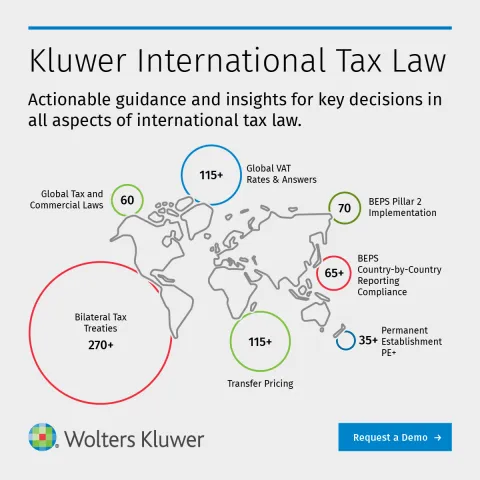Pillar Two in Europe: Tax Justice or Strategic Misstep?
July 16, 2025
On 12 December 2022, Zbyněk Stanjura, Minister for Finance of Czechia, in representation of the EU Council, announced the implementation of the OECD Pillar Two in Europe in this way: “I am very pleased to announce that we agreed to adopt the directive on the Pillar 2 proposal today. Our message is clear: The largest groups of corporations, multinational or domestic, will need to pay a corporate tax that cannot be lower than 15%, globally”.1 Back then, everything was joy. It was the triumph of tax justice, the end of unfair tax competition. Almost like the final scene of a Hollywood movie about war heroes saving the world from an unavoidable debacle.
We are in mid-2025, and the United States –– the same country of the Hollywood movies–– has not only officially announced dropping out of all the negotiations of the so-called ‘global tax deal’ early this year, but also they have managed to secure an exemption for the application of the two main rules that support the OECD Pillar Two or global minimum tax: IIR and UTPR.2 In other words, the world’s largest economy and home to the most powerful multinationals just secured no minimum tax for American MNEs, while the rest of the world –Europe included– is left holding the compliance bag.
Do not get me wrong. A global minimum tax might be as noble as it is necessary, but as it is now, it has become a competitive disadvantage for Europe, proving that global commitments require strategic decisions and calculated steps, and Europe has failed to do so.
The illusion of a level playing field
The OECD Pillar Two promised to end tax competition, preventing a race to the bottom in corporate income taxes, and contributing to a fairer tax system globally. All this would be achieved through a system of ‘top-up taxes’ that would ensure that when an MNE group is taxed below the minimum agreed, another country would have the chance to tax up to the minimum. Clever, isn’t it? However, for this to work, another minimum requirement was needed: participation.
The United States’ previous administration went on a global tour, convincing countries that implementing Pillar Two was strategically right. After all, if the first economy in the world were to actively join, the path would be paved. The European Union jumped in first and implemented a directive an EU Directive does not only affect MNE groups that operate worldwide, but also those operating exclusively within the European internal market.3
Now that the United States, China, and India are simply out of the deal, either explicitly or implicitly, European multinationals find themselves uniquely exposed, subject to higher effective tax rates and labyrinthine compliance burdens, while their American counterparts continue to enjoy the comforts of homegrown incentives and a tax system that, at least for now, looks the other way.
This is certainly not the ‘levelling playing field’ originally offered. It is a competitive disadvantage disguised as progress.
The cost of moving on alone
Europeans are stubborn, and they may want to press ahead with the implementation of Pillar Two. After all, this is not only about tax policy, but also about political egos. If they do so, the issue is self-evident: the EU Directive will force Member States to impose top-up taxes in exclusive intra-EU scenarios, but other global economic actors as relevant as the United States or China will not have to deal with this. In other words, EU MNEs will become less competitive in the global economic scenario. In this context, the questions are simple: Is it wise to sacrifice competitiveness on the altar of tax justice (or fairness)? Are we so eager to lead that we are willing to go it alone, even if it means undermining our own MNEs in the process?
The questions are as uncomfortable as the reality in front of us, because we have confused movement with momentum, and action with improvisation. The OECD Pillar Two, as currently implemented, is not a victory for tax justice or fairness—it is a pyrrhic victory, one that may leave European businesses weaker and the global tax system no fairer at all.
A plea for pause and reflection
Although the scenario is adverse. It is not too late for Europe to reconsider its position on the OECD Pillar Two.
A conservative option would be to consider the suspension of the directive, something that others have publicly supported.4 Indeed, Article 32 of the EU Directive on Pillar Two allows for a temporary pause, which may serve as a moment to catch our breath and take stock. We should seize it. Not as an admission of failure, but as an act of prudence.
A more blunt but realistic option is to simply repeal a Directive that should never have existed. Not as a demonstration of the lack of compromise that the EU may have with tax justice and fairness, but because the rules of the game have changed, and so the strategy should. Indeed, repealing the EU Directive on Pillar Two now may not only reduce the administrative burden and compliance costs associated to Pillar Two, but it could also significantly help level the playing field for EU-based MNEs by removing a set of rules that currently place them at a competitive disadvantage compared to rivals from jurisdictions not implementing the global minimum tax.
Let us not mistake stubbornness for leadership. The world is watching. It is time for Europe to pause, reflect, and demand the global coordination we were promised. Anything less is not fairness or justice—it is folly.
- 1Press Release, International Taxation: Council reaches agreement on a minimum level of taxation for largest corporations, 12 December 2022.
- 2G7 Statement on the Global Minimum Tax, 28 June 2025.
- 3Leopoldo Parada, Global Minimum Taxation and EU Competitiveness: What Now? Kluwer International Tax Law Blog, 17 March 2025.
- 4Opinion Statement 2/2025 on the Introduction of a Temporary Pause of Pillar 2 Extra-Territorial Rules (IIR & UTPR) Under Article 32 EU Minimum Tax Directive.
You may also like






